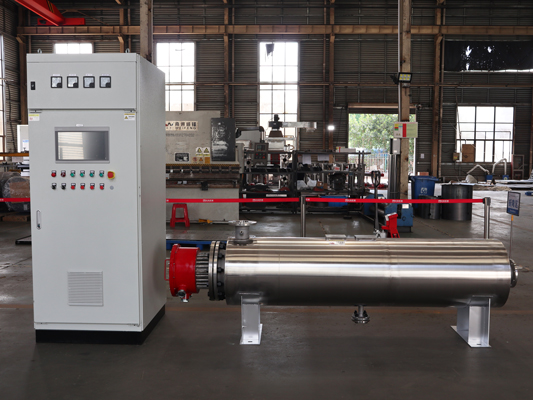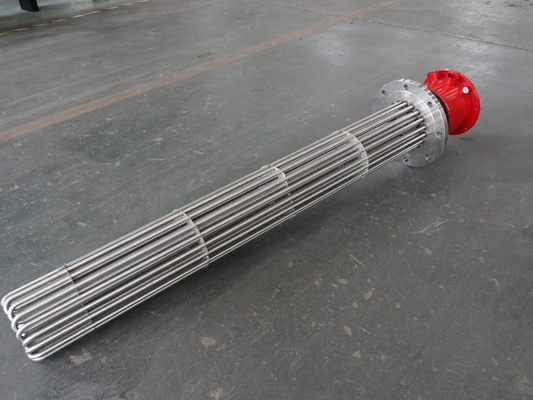- 1. Heating medium
Water: ordinary industrial circulating water, no special requirements.
Corrosive liquids (such as acid, alkali, salt water): stainless steel (316L) or titanium heating tubes are required.
High viscosity liquids (such as oil, thermal oil): high power or stirring heating system is required.

2. Heater type selection
(1) Immersion electric heater (directly inserted into the water tank/pipeline)
Applicable scenarios: water tank, storage tank, reactor heating.
Advantages: simple installation and low cost.
Disadvantages: scale needs to be cleaned regularly, not suitable for high pressure systems.
(2) Flange electric heater (flange connection)
Applicable scenarios: high pressure, large flow circulation system (such as boiler water supply, chemical reactor).
Advantages: high pressure resistance (up to 10MPa or more), easy maintenance.
Disadvantages: high price, need to match flange interface

(3) Pipeline electric heater (connected in series in the pipeline)
Applicable scenarios: closed circulation system (such as HVAC, industrial hot water circulation).
Advantages: uniform heating, can be precisely adjusted with the temperature control system.
Disadvantages: the pressure bearing capacity of the pipeline must be considered during installation.
(4) Explosion-proof electric heater (Exd/IICT4 certified)
Applicable scenarios: chemical, petroleum, natural gas and other explosive environments.
Features: fully enclosed explosion-proof design, in compliance with ATEX/IECEx standards.
If you want to know more about our product, please contact us!
Post time: Jun-16-2025




